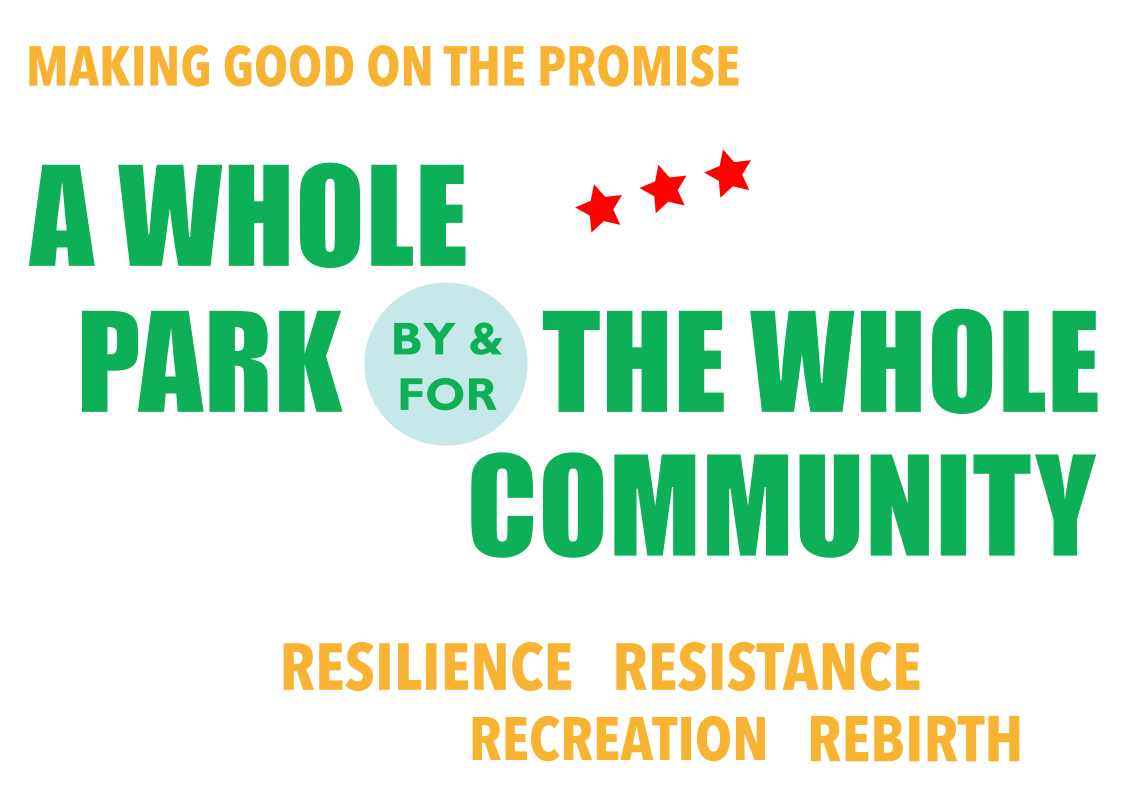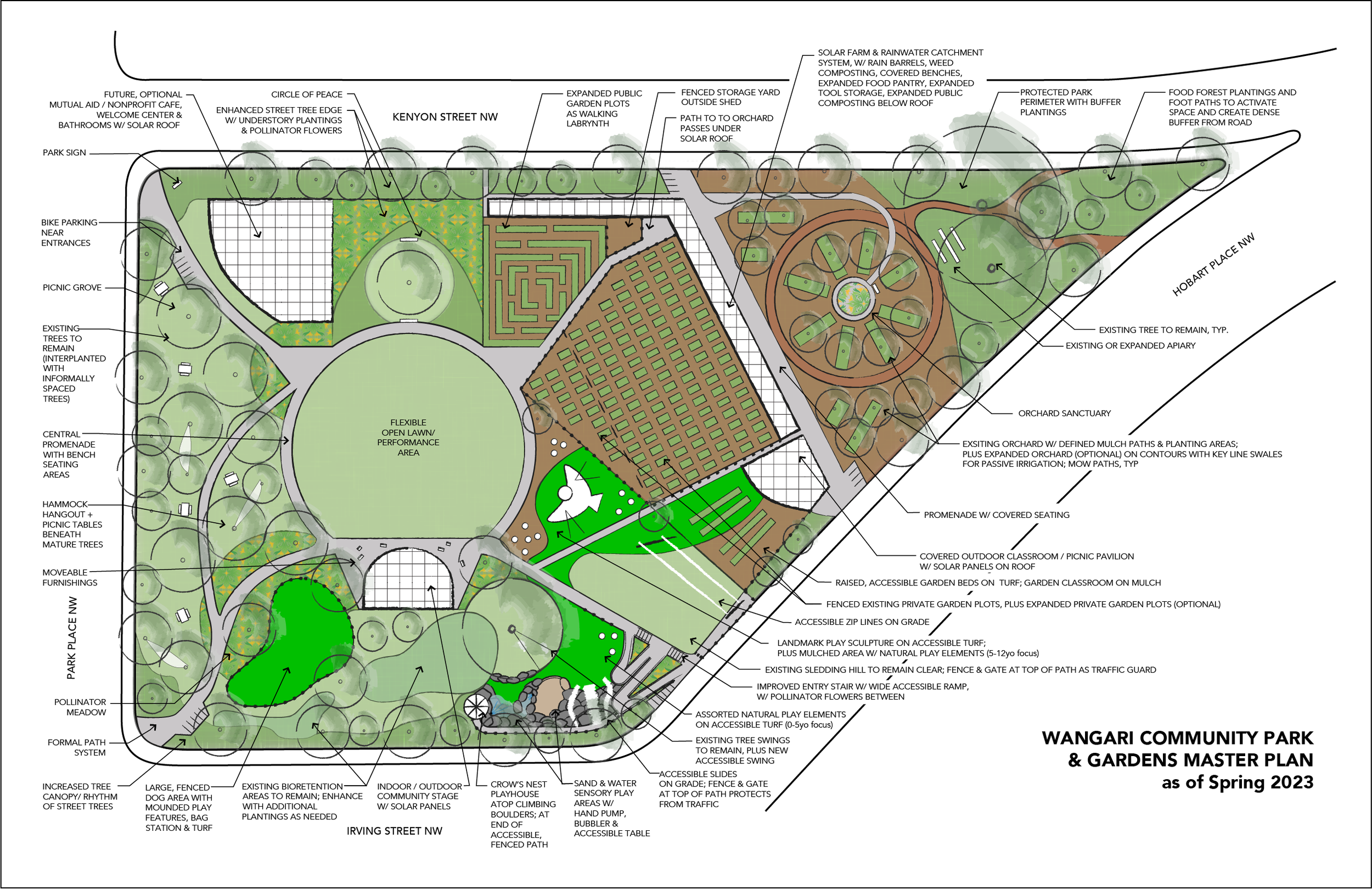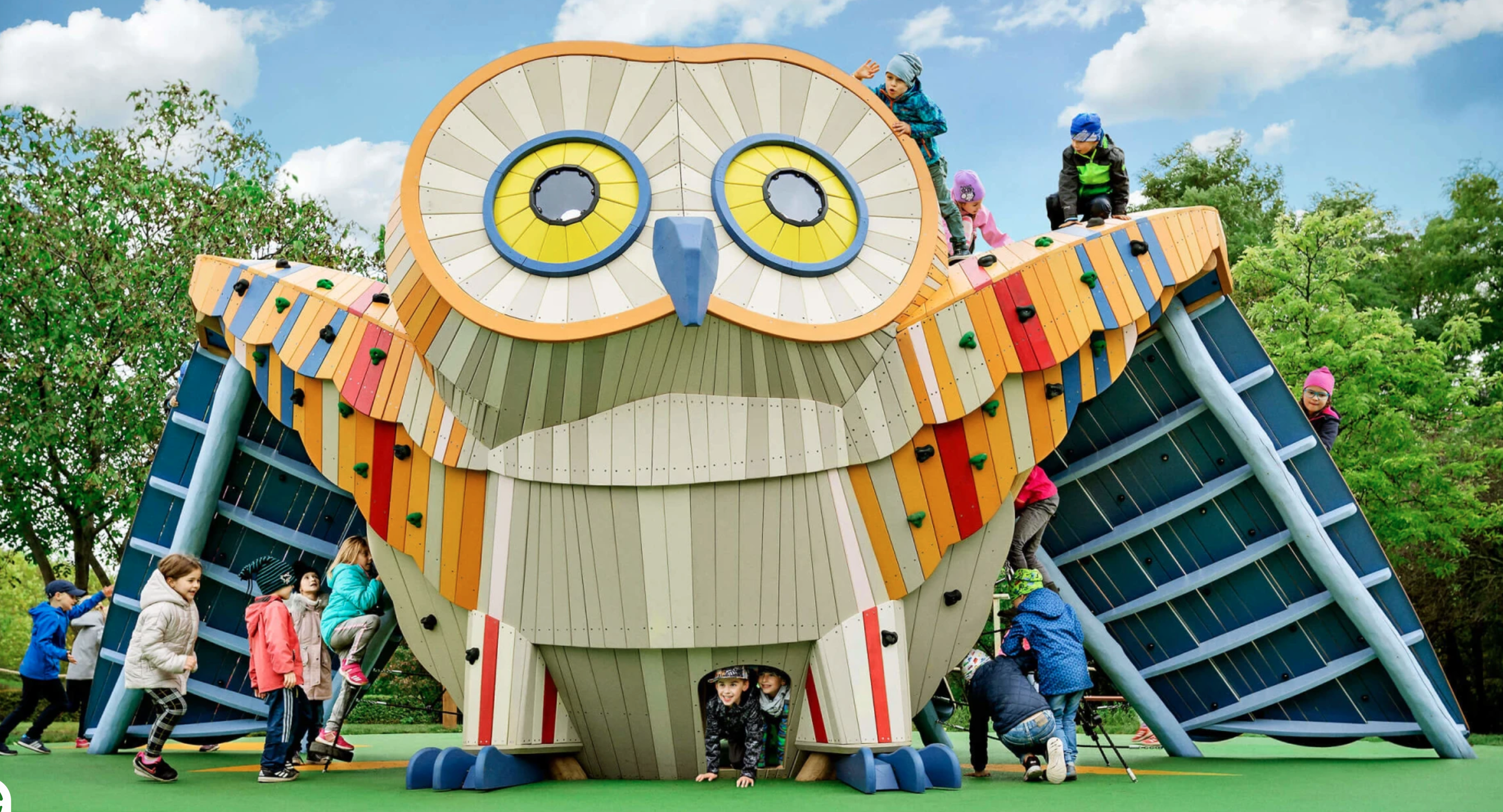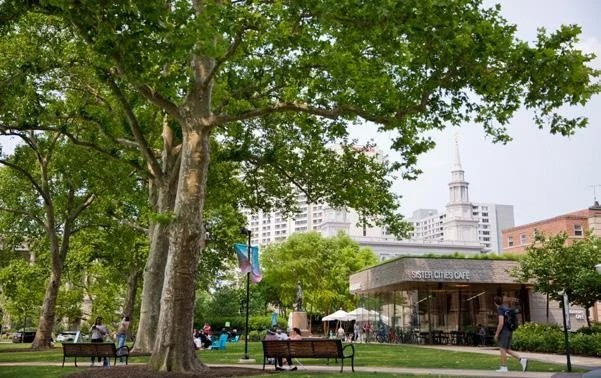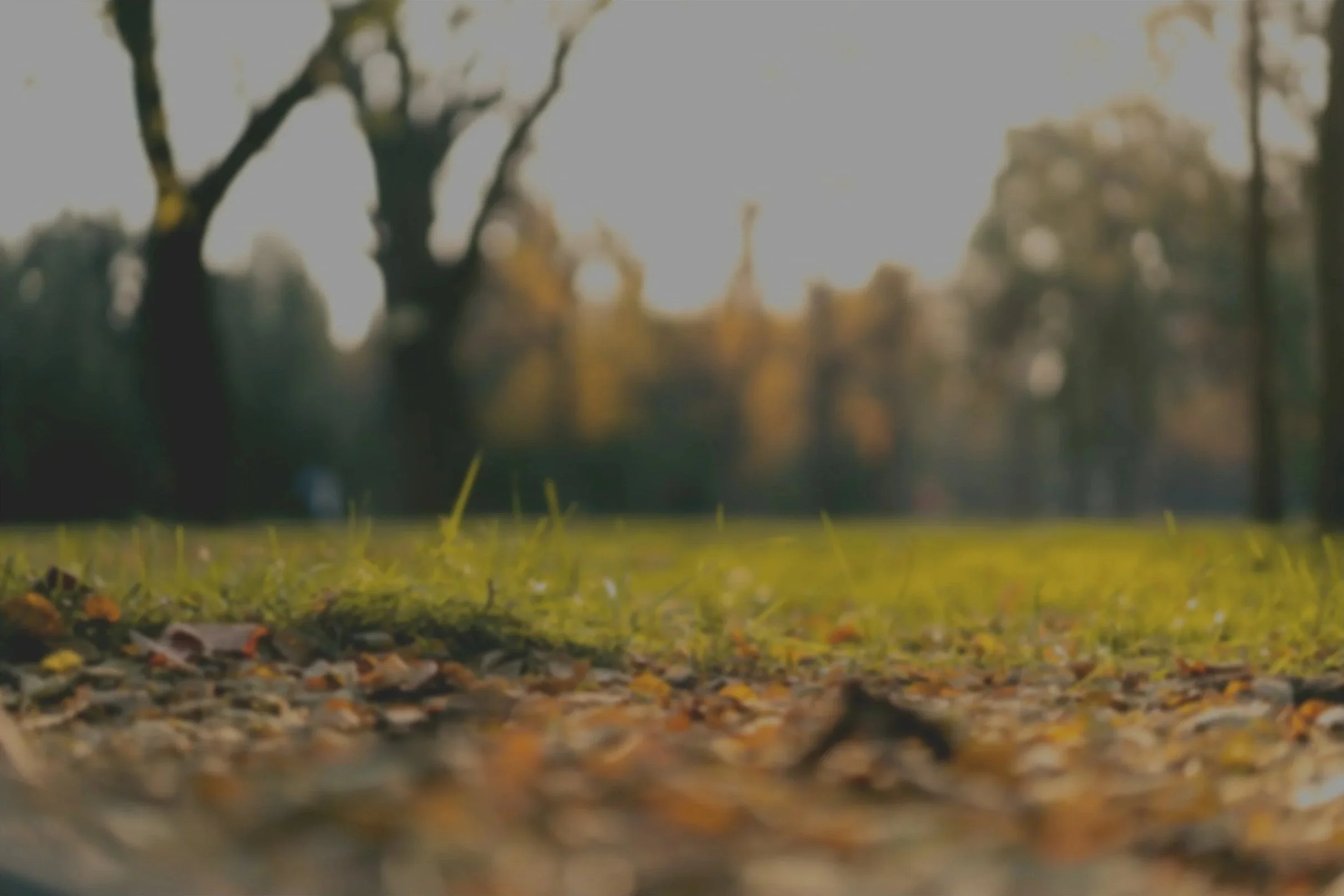
FOOD
WATER
ELECTRICITY
SHELTER
AID
NATURE
PLAY
COMMUNITY
FOOD WATER ELECTRICITY SHELTER AID NATURE PLAY COMMUNITY
the resilience hub model
A resilience hub is a community space designed to support the needs and welfare of neighbors through times of peace and upheaval. Resilience hubs vary widely in their forms and features, as each is designed for and by a unique community. However, resilience hubs typically include a combination of indoor space, outdoor space, and social programming focused on the provision of food, water, electricity, shelter, and aid in a manner that can survive interruptions to other public and private infrastructure, services, and funding.
Resilience hubs often include solar farms, rainwater catchment, urban agriculture, and indoor space for community organizing. Some communities opt to include co-working or skills training spaces; cafes and communal kitchens; libraries and pantries for swapping, sharing, or storing books, tools, food, water, blankets, bandages, and other emergency supplies; emergency rest areas; and / or showers and bathrooms. Past surveys and engagement with the Park View community have shown a consistently high demand to maintain as much tree-covered area as possible in Wangari Community Park while making accessibility improvements, a natural and inclusive playground, a dog run, a performance stage, walking paths, bike parking, covered seating, running water, and garbage cans. Any and all of these things are possible.
show your support!
GIVE US A BOOST!
follow along!
SAY HELLO! / join us!
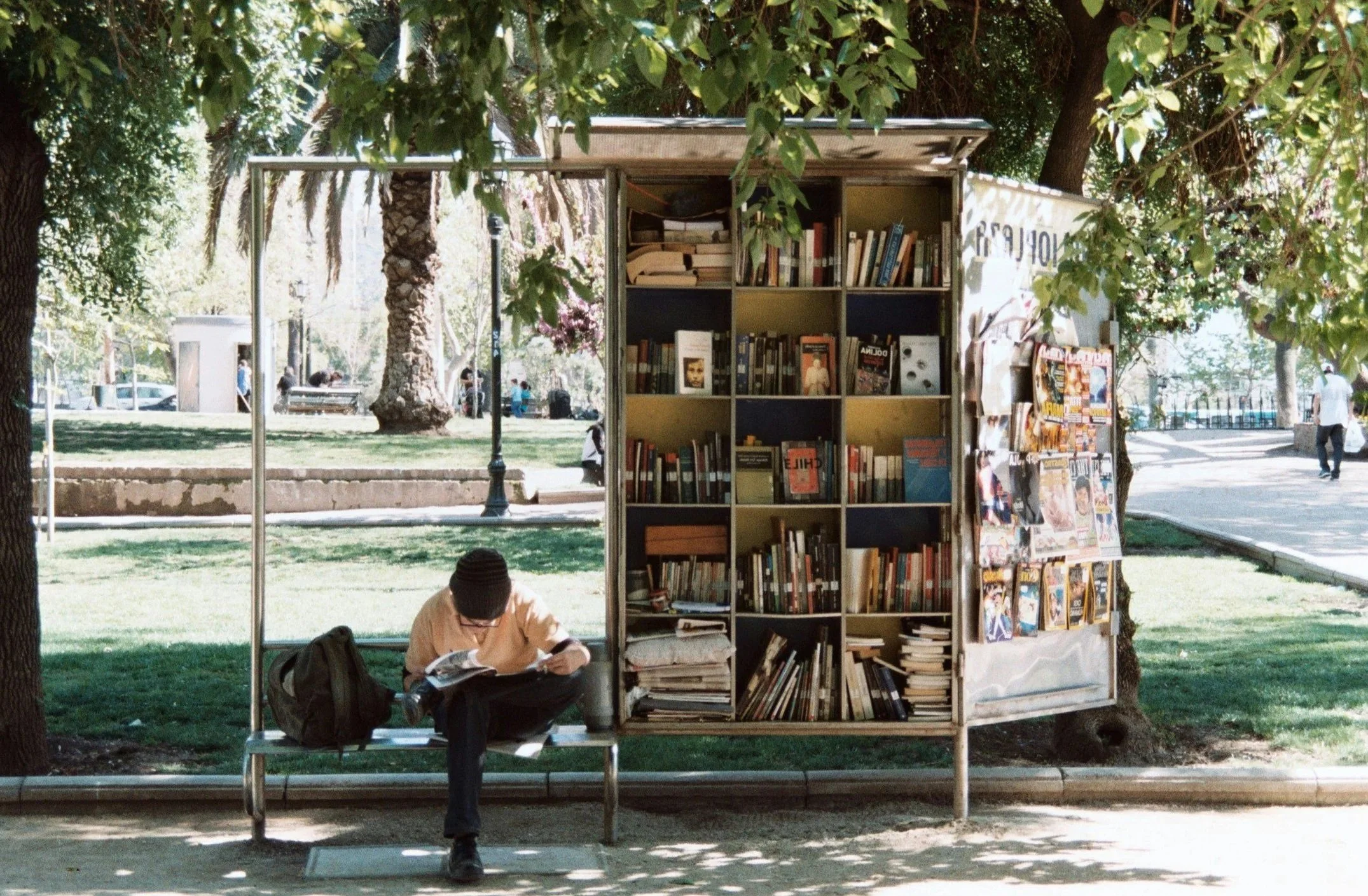
our story & Mission
The Wangari Community Park Collective is a nonprofit organization led by community members who call Park View and its immediate neighbors our home. We are committed to designing, building, and sustaining Wangari Community Park in partnership with and on behalf of our wonderfully diverse community — and to doing so in a timely, democratic, and responsible manner.
An independent outgrowth of the existing community gardening group on site, WCPC is being thoughtfully formed in consultation with lifelong neighbors, local leaders, and equitable community development experts to have the structure, inclusivity, transparency, and leadership necessary to reliably uphold our values and successfully fulfill our commitments to our beloved community.
The WCPC honors the legacy of its namesake — the Nobel Laureate and Founder of the Green Belt Movement, Wangari Maathai — and her commitment to women and the environment. In keeping, our mission is to create and sustain a place for and with our community that will:
enhance our community’s ability to survive and thrive in the face of political oppression, climate change, economic stress, and health crises
empower marginalized people, celebrate our community’s diversity, and stand up for those oppressed domestically and abroad
protect our democracy, our rights, our environment, and our health
facilitate mutual aid and the creation of new methods of connecting and uplifting each other
enhance our community’s access to food, water, electricity, shelter, and healthcare
connect people to nature, art, play, and each other
what might the park look like?
Casual ideas for the park’s development have floated around Park View for at least 15 years, and likely much longer! In 2020, the first formal attempt was made to engage our community broadly to determine our collective wants and needs and to organize them into a working master plan. And while this effort provided lots of valuable information, it did not go far enough to reach all of the voices in our community. WCPC leaders began to do additional work to capture missing voices and update the master plan accordingly. And yet, more community engagement — and more design changes — are needed to be confident that the master plan reflects the vision of the whole community. Below is the latest version of our community’s master plan. (For additional information on each of the park spaces, check out the menu links above.) And please, let us know what you think!

